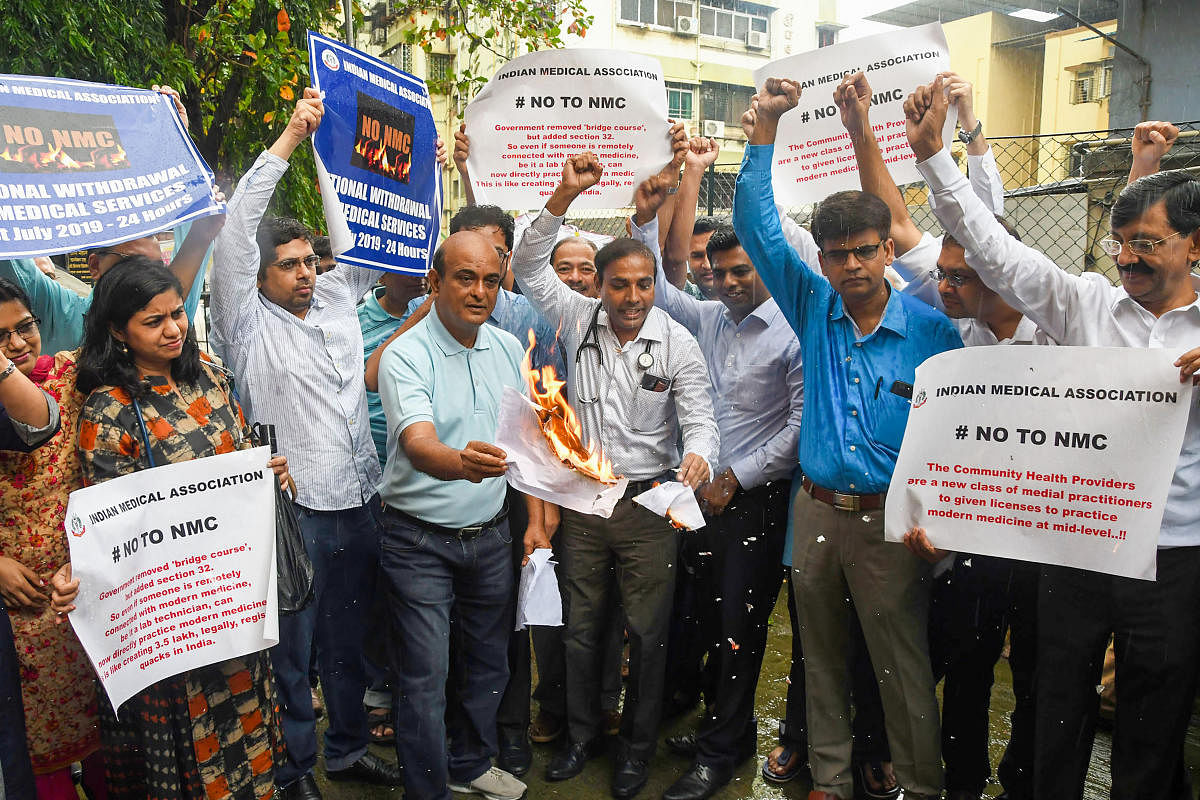
Government on Thursday walked half-way to meet some of Opposition's concerns on National Medical Commission Bill by increasing the number of state representatives in the body that will replace the corruption-laden Medical Council of India.
Rajya Sabha passed the bill, which was already cleared by Lok Sabha, with two amendments through a voice vote after five hours of debate, which saw the walkout of MPs of NDA ally AIADMK. The passage of the bill in Rajya Sabha came amid country-wide protests of doctors.
Now, the amendments will have to be approved by the Lok Sabha before it being sent to the President for his assent and subsequent notification as to the law of land.
Amendments moved by DMK MP Tiruchi Siva opposing NEET exam and CPI(M)'s K K Ragesh against granting the license to practice medicines at the mid-level as Community Health Provider among others were defeated in the House.
Leader of Opposition and former Union Health Minister Ghulam Nabi Azad also strongly opposed the provision in the bill that aims to provide licenses to 3.5 lakh unqualified non-medical persons to practice modern medicine.
Extending an olive branch to the Opposition, the government moved the amendment to increase the number of state and elected medical representatives in the Commission to 10 and nine (from six and five) respectively after Congress' Jairam Ramesh forcefully argued for the same.
While the bill passed by the Lok Sabha capped the number of members in the NMC at 25, the government amendments resulted in the increase of the number of members to 33.
During the debate, Ramesh said that the provision to grant limited license to practice medicine at mid-level as Community Health Provider will lead to "institutionalising quackery". Ramesh was supported by Samajwadi Party leader Ramgopal Yadav.
However, Health Minister Harsh Vardhan assured the House that the Bill "in no way intends to promote quackery". He said there are strong provisions against wrong practices that include one-year imprisonment and Rs 5 lakh fine as against a nominal fine by the MCI.
Ramesh had also expressed fear that the cap of fee regulation only in 50% of seats in private medical colleges and deemed universities would "open the floodgates to privatisation in medical education". He wanted the cap to be increased to 75%.
The Health Minister responded saying 40,000 of the total 80,000 of MBBS seats are under government institutions. "The 40,000 seats under government has a nominal fee. The MCI had no provision for regulating fee or cap for the private sector but now 50% of the 40,000 seats with private colleges will be regulated with cap," he said.
